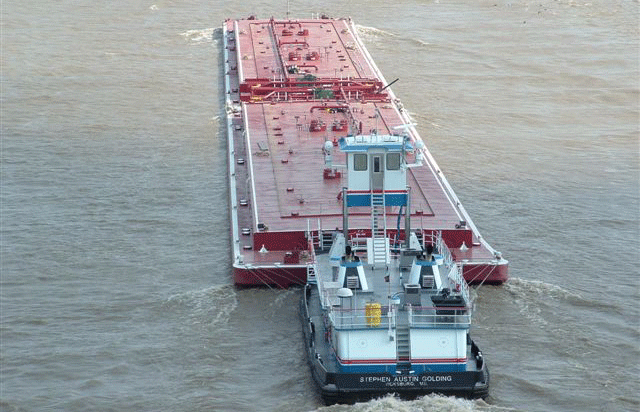House Republicans unveiled a sweeping tax reform plan on Feb. 26 that would increase the diesel fuel tax paid by tug and barge operators. The move is supported by the inland industry to fund much-needed improvements to the nation's aging waterways infrastructure.
A discussion draft for what Rep. David Camp, R-Mich., chairman of the House Ways and Means Committee, hopes will become the Tax Reform Act of 2014 would increase to 26 cents the current 20-cents-per-gallon diesel fuel tax paid by the inland towing industry.
The fees finance half the cost of inland infrastructure construction and major rehabilitation through the Inland Waterways Trust Fund, with the federal government paying the balance. Declining revenues and the high cost of the Olmsted locks and dam project in Illinois have deeply depleted the fund.
The six-cent increase is in line with a request of the Waterways Council Inc., an industry-lobbying group, and 40 stakeholders, who argue that the money is desperately needed to modernize the nation's lock and dam system. The increase is also included in legislation H.R. 1149 now pending in the House, also known as WAVE-4, and is supported by a bill renewing the Water Resources Development Act (WRDA), which contains many important policy reforms to help improve inland waterways infrastructure.
“The user fee is paid by those who pay it — just 300 commercial operators — while the entire nation benefits, from hydropower, municipal water supply, recreational boating and fishing, flood control, national security and waterfront property development,” WCI and the stakeholders said in a Sept. 24 letter to Rep. Camp.
Inclusion of the tax increase is a major victory for the inland industry in its efforts to reform how waterways are funded and modernized. Many had predicted that the proposal would go nowhere in a Congress that seemed paralyzed to move legislation forward, especially if it involved tax increases.
But the GOP tax reform plan still has an uncertain future. Mindful of the upcoming midterm elections in November and the many differences between Republicans and Democrats on tax issues, Congressional leaders say a comprehensive tax bill has little chances of passing this year.
Speaking to reporters last week, Senate Minority Leader Mitch McConnell, R-Ky., said: “I think we will not be able to finish the job, regretfully, in 2014.”
The user fee increase could also encounter resistance from conservatives who oppose any types of tax hikes, even if supported by those who will pay for the increases. Taxpayer groups have also criticized the increase as being too small, just a token gesture by the industry, while taxpayers continue to finance the lion share of infrastructure improvements.
For the moment, though, this doesn’t concern the waterways industry.
“We don't know that we will encounter any pushback until the proposal moves out in tax extenders or in tax reform, but we, and many others, don't see it as a traditional tax, but a user fee,” said Debra Colbert, WCI senior vice president. “The system needs reinvestment and this is a very responsible way to do that, and one that all stakeholders support.”




